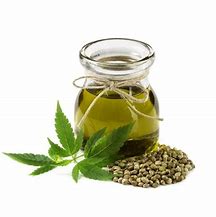Walnut Oil - Juglans regia - 2
![]()
![]()
![]()
![]()
![]()
![]()
![]()
![]()
![]()
Walnut Oil - Juglans regia - 2
Physical Properties
| Odour | Typical walnut aroma |
| Acid value | 0.25 max |
| Specific gravity | 0.919-0.925 |
| Energy value Kcal/100 ml | 903 |
| Mineral content | Ca,S,P,C1, Na,K,Mg,Fe,Au, Cu, Mn, Zn |
Folk-lore and traditional plant uses
The fleshy outer part of the fruit and also the leaves have been used for thousands of years to dye hair. Theophrastus (371-287 BC) and Pliny (AD 23-79) both described this application: a natural brown dye can also be extracted from the shells: the leaves of the walnut tree have astringent properties and have been used for both skin problems and digestive ailments.
A decoction of the leaves repels ants (Mabey 1988) and a homoeopathic skin remedy may be prepared from leaves. The leaves of the walnut tree are a well known household remedy for chronic eczema, scrofula and inflammation of the lids, and are suitable, combined with pansy, for children's skin complaints (Weiss 1988) Walnut oil has been used for treating kidney stones, and nursing mothers have taken it in order to increase lactattion, Antianaemic and tonic properties have also been mentioned.
- The drug may be an ingredient of medications based on plants, and may claim the following indications: traditionally used
for the symptomatic treatment of mild diarrhoea
Locally it can be used
to treat scalp itching, peeling and dandruff
as an adjunctive emollient and itch-relieving treatment in skin disorders
to treat sunburn and superficial burns
as an antalgic in diseases of the oral cavity, of the oropharynx, or both.
Leaf extracts are used in cosmetology.' (Bruneton 1995}
Therapeutic Properties - External Use
said to be effective in treating eczema (Bartram 1996)
Cosmetic Use
Used in hair and skin preparations
Culinary use
Unrefined walnut oil is a high quality culinary oil with excellent flavour when used in salad dressings and on potatoes. In France its delicate flavour is utilized in cakes, bread and some bean dishes. The nuts can be picked and pickled before the shell has formed, with delicious results. The unripe fruits and leaves are also used to flavour wine or to make an aperitif.
The nuts can be a rather dirty brown colour naturally and organically grown nuts are washed in water. Large commercial producers often soak them in a bleach to make them more 'attractive' to the purchaser. This imparts a slightly bitter taste and unbleached nuts are best for the health. Organically produced walnuts are not beached and therefore make the best oil for use in both food and aromatherapy.
Cautionary Notes
Walnut oil has no known contraindications although the wood has been reported as an irritant (Schleicher 1974).
Reference: Carrier Oils For Aromatherapy & Massage: Len Price with Ian Smith & Shirley Price
Articles-Most Read
- Home
- Contact Us
- Coconut Oil-2
- Absorption Ratings for Carrier Oils
- Cold Pressing Method
- What are Essential Fatty Acids
- Cherry Kernel Oil
- Fixed Oils and Skin Penetration
- Hempseed Oil
- Almond Oil
- Cocoa butter
- Camelina Oil
- Antibacterial Effects Of Carrier Oil
- Coconut Oil
- Lime Blossom Oil (macerated)
- Carrot Oil, Wild Carrot Oil (macerated)
- Apricot Kernel Oil
- Kukui Nut Oil
- Pumkin Seed Oil - Cucurbita maxima, C. pepo
- Jojoba Wax
- Passion Flower OIl (Macerated)
- Hydrocotyle Oil (macerated)
- Palm Kernel Oil
- Rapeseed Oil - Carrier Oil
- Nutrients
Who's On Line
We have 93 guests and no members online
Articles-Latest
- How to Make Homemade Olive Oil: A Step-by-Step Guide
- 20 Evidence-Based Aloe Vera Oil Benefits For Skin, Hair & Health
- Peanut oil - Cold pressed - Are There Health Benefits? How To Make
- What Are the Health Benefits of Black Seed Oil?
- Comfrey oil Infused
- Chamomile Flowers Infused Oil
- Calendula Flowers Infused Oil
- Arnica Flowers Infused Oil
- How To Make Herb-Infused Oils
- DIY avocado oil for healthy skin
- How To Make Coconut Oil
- 8 Benefits of Mustard Oil, Plus How to Use It
- SHOREA STENOPTERA SEED BUTTER
- Shea Butter- 7 Amazing Benefits Of Shea Butter
- Monoi Oil For Hair & Skin
- Mango Seed Oil
- Cohune Oil Is The Next Big Thing
- Brazil Nut OIl
- 7 Impressive Benefits Of Allspice
- Camelina Oil Benefits, Uses, and Side Effects




